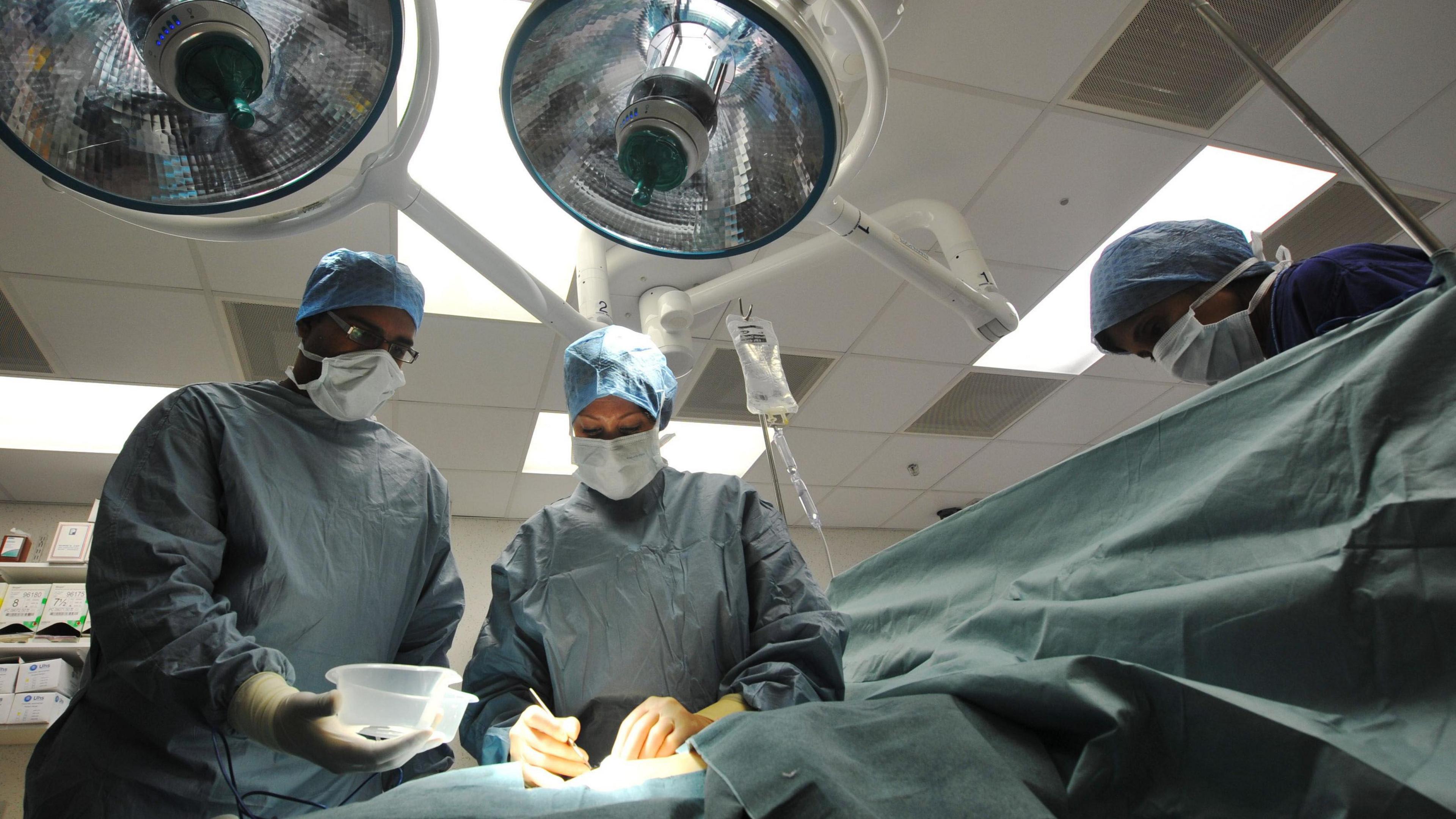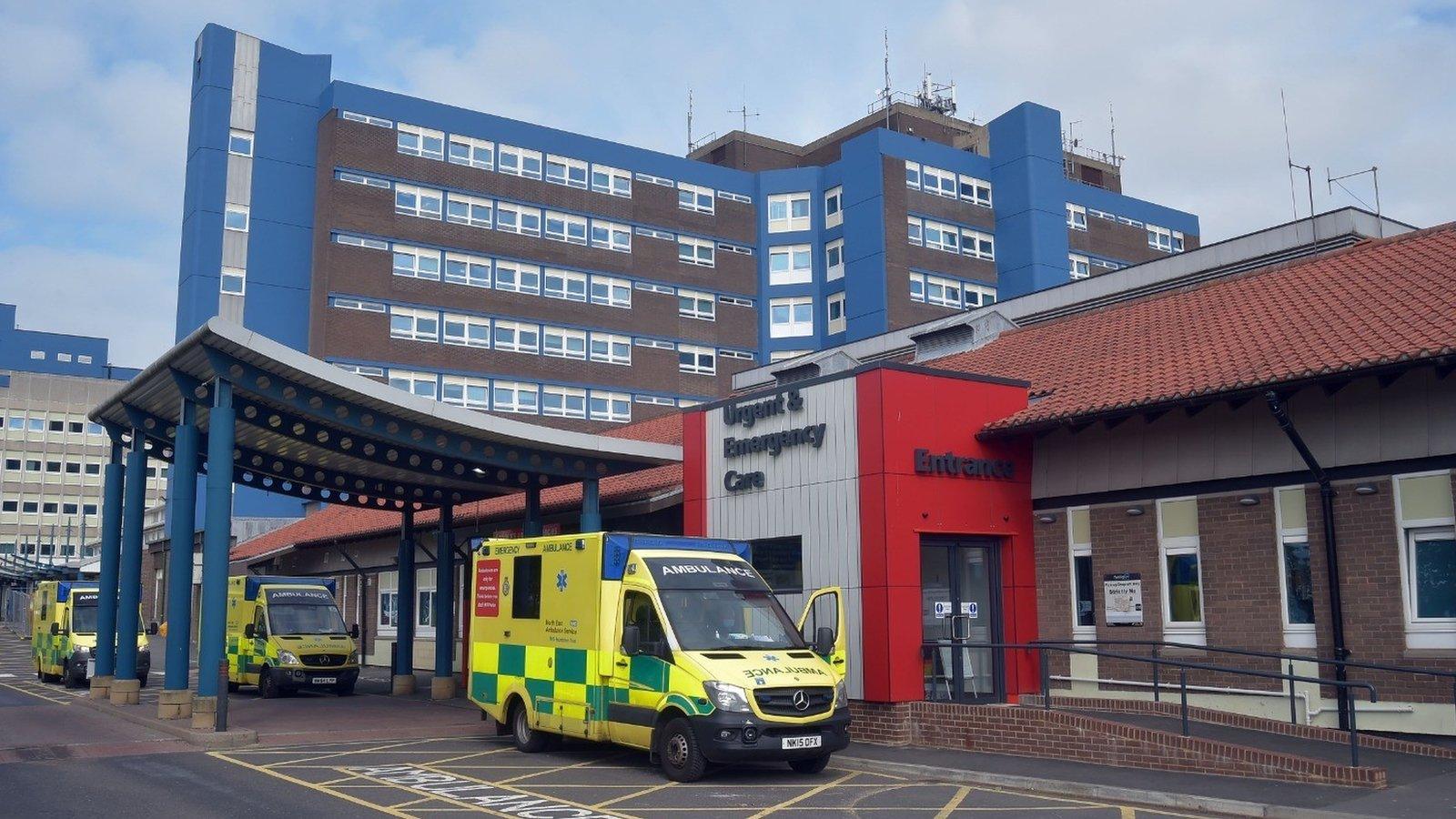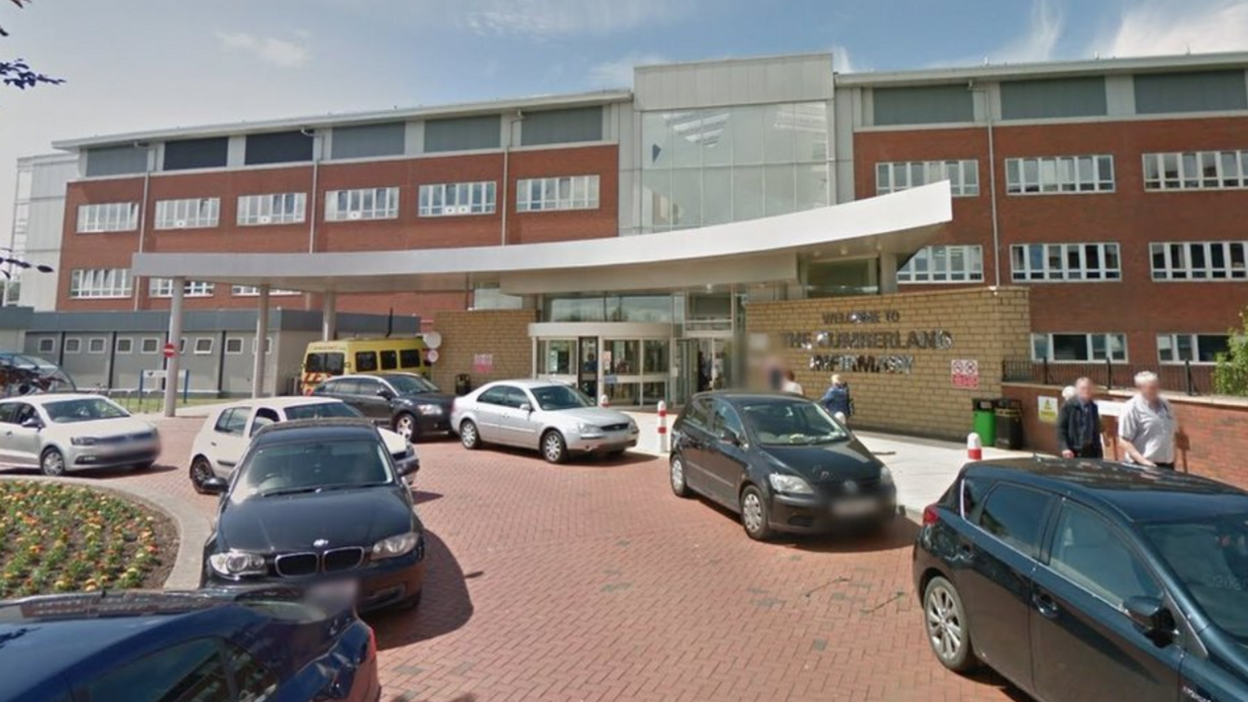Hospitals hit by power cuts as repair bills soar

Operating theatres are among facilities affected by clinical service incidents
- Published
Power cuts during surgery, crumbling buildings, flooding and insufferable temperatures are among potentially harmful incidents linked to hospitals in north-east England and Cumbria.
A BBC investigation has uncovered the scale of disruption to patient care caused by outdated NHS buildings and equipment.
The cost to fill the repair backlog at hospitals in the North East and Cumbria was at least £367m in 2022-23.
Sir Julian Hartley, chief executive of NHS Providers, said staff and patient safety was at stake, while the government said "significant sums" had been invested to modernise the NHS.
When an NHS hospital's ability to deliver care is affected by failures in the hospital environment, a clinical service incident (CSI) is recorded.
According to Freedom of Information requests submitted by the BBC's Shared Data Unit, dozens of CSIs were highlighted in acute hospitals run by NHS trusts in the North East and north Cumbria in 2022-23.
The scale of the issue is likely to be higher, as a number of trusts did not respond to the request.
Power cuts
Among 40 CSIs disclosed by the Northumbria Healthcare NHS Trust was an incident that saw porters unable to transport a dead patient to the mortuary because mortuary doors were broken.
On another occasion, power was cut to an operating theatre where patients were "on the table" having implants inserted. It was not reinstated for 15 minutes.
Northumbria Healthcare NHS Trust said it is investing in the improving and upgrading of its large estate to ensure safe and quality patient care.
A spokesperson for the Trust said data from a recent independent estates survey is being used to prioritise investment, adding: "We will always do what we can to resolve any incidents that may impact on patient care as quickly as we can."
Malfunctions
At the North Cumbria Integrated Care NHS Foundation Trust (NCIC), 42 CSIs were logged that year, with at least 23 patients affected as a result.
They included a ceiling tile falling on a patient, power to a MRI machine being lost, a broken lock trapping a "high risk" patient in a toilet and at least five flooding incidents.
Malfunctioning refrigerators also led to vaccination supplies being destroyed and anaesthetic drugs rendered unfit to use, while the emergency helicopter could not land on one occasion because the helipad was insecure and unlit.
A spokesperson for NCIC said staff were encouraged to record any incidents, adding: "It is important that we continually monitor our estates and facilities to make sure they are fit for purpose."
Backlog
In line with trusts across the country, repair bills are soaring for hospitals in the region.
The NHS defines "high-risk repairs" as those which must be urgently addressed to "prevent catastrophic failure or major disruption to clinical services".
The bill to complete a backlog of high-risk repairs at acute hospitals in the North East and Cumbria more than doubled in just a year, from £51m to at least £123m in 2022-23.
The cost to repair all infrastructure issues is also up by a quarter, and now stands at £367m.
The discovery of reinforced autoclave aerated concrete (Raac) at dozens of hospitals, including Middlesbrough's James Cook University Hospital and Stockton's University Hospital of North Tees, has reportedly been a significant factor in the £9bn overall repair bill nationally.
The NCIC said its £10.6m repair backlog reflects an estimate of the total cost to return the Trust's entire estate to a good condition.
A spokesperson highlighted recent investments including the redevelopment of West Cumberland Hospital, and said the estimate did not take account of plans to replace or demolish old buildings.
'Alarming'
Sir Julian said the bill for a "to do" list of essential repairs across the NHS is growing at an "alarming rate".
Calling for major capital investment from the government, he added: "Safety of patients and staff is at stake, more than half of the repairs backlog is of 'high or significant risk'.
"Far too many NHS buildings and equipment are in a very bad way."
Siva Anandaciva of the independent charitable organisation The King's Fund said the "terrible state" of some NHS buildings should be a "wake-up call" for the government.
He said the poor condition of some parts of the estate pose a "daily risk", adding: "Despite pledges to build and refurbish NHS hospitals, the data clearly shows how some NHS facilities are simply not fit for the purpose of delivering modern health care."
Government investment
A Department of Health and Social Care spokeswoman said the government had invested "significant sums to upgrade and modernise NHS buildings" including £4.2bn this financial year.
She added: "Trusts are responsible for prioritising this funding to maintain and refurbish their premises, including the renewal and replacement of equipment."
Additional investment of more than £20bn for the New Hospital Programme is expected, alongside nationally funded infrastructure improvements in mental health, urgent and emergency care and diagnostic capacity.
Follow BBC North East on X (formerly Twitter), external, Facebook, external and Instagram, external. Send your story ideas to northeastandcumbria@bbc.co.uk.
More stories from BBC North East and Cumbria
- Published6 September 2021

- Published17 November 2023
